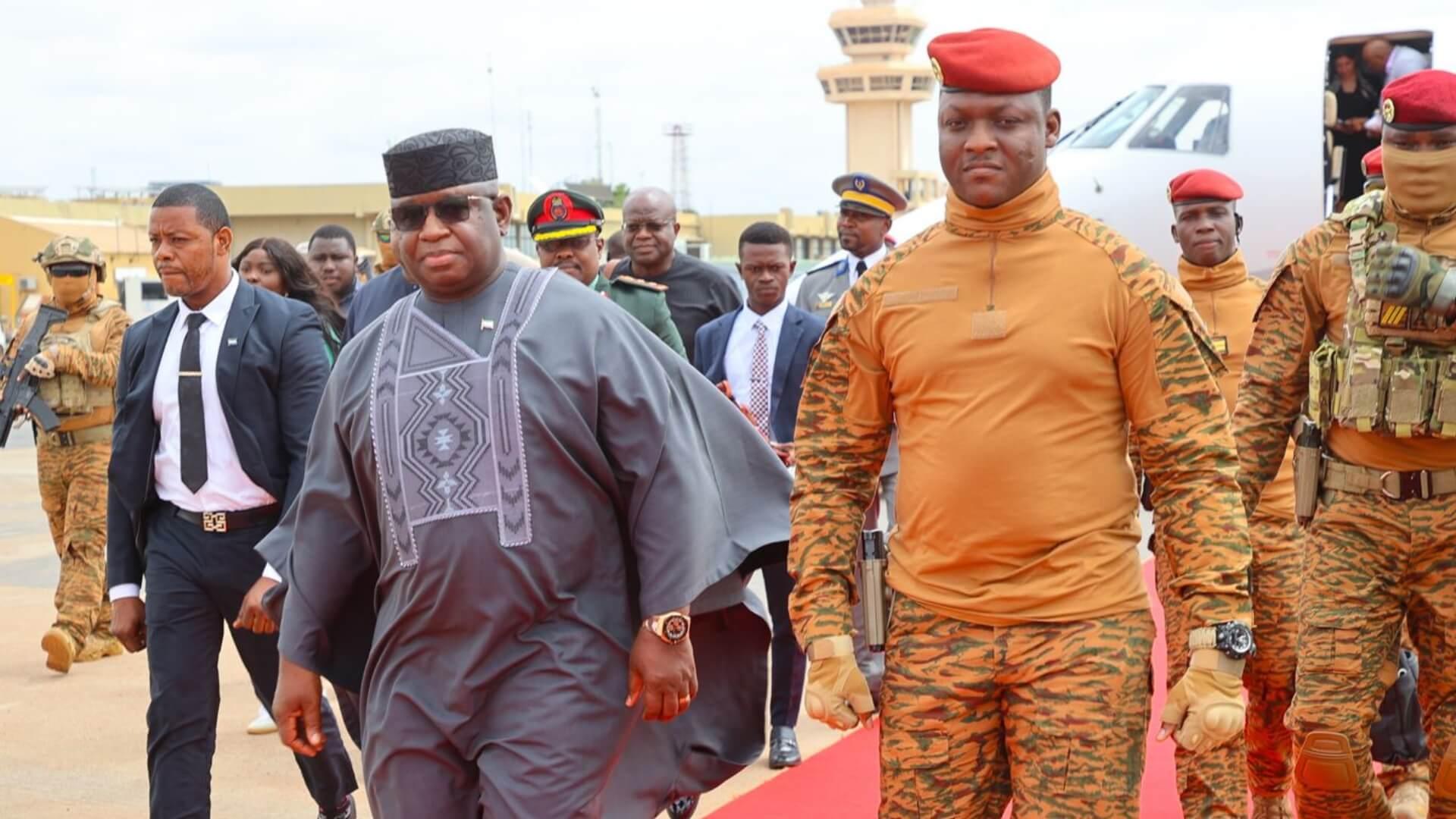Sierra Leone’s President Julius Maada Bio made a historic visit to Burkina Faso as ECOWAS chair, signaling a shift from confrontation to dialogue with the Sahel bloc.
In a landmark moment for West African diplomacy, Sierra Leone’s President Julius Maada Bio—who assumed the chairmanship of ECOWAS in June 2025—paid an official visit to Burkina Faso on Tuesday, meeting junta leader Captain Ibrahim Traoré at the Koulouba presidential palace.
The trip marks the first time an ECOWAS chair has visited a member of the Alliance of Sahel States (AES) since Burkina Faso, Mali, and Niger formally withdrew from the regional bloc earlier this year.
It signals a decisive shift from confrontation to dialogue as West Africa seeks new pathways of cooperation in the face of insecurity and political divides.
A Diplomatic First as ECOWAS Seeks Dialogue
President Bio’s arrival in Ouagadougou was met with warmth and ceremony. Captain Traoré personally received him at the airport before the two leaders held bilateral talks focused on security, economic cooperation, and the future of ECOWAS-AES relations.
The discussions highlighted:
- Joint strategies to address insecurity and violent extremism across the Sahel.
- Strengthening bilateral trade and investment between Sierra Leone and Burkina Faso.
- Exploring frameworks for pragmatic cooperation between ECOWAS and the AES.
- Reinforcing solidarity and regional integration despite political rifts.
Speaking after the talks, President Bio emphasized unity and African brotherhood:
“We are brothers, we cannot be divided. My visit is an act of solidarity to show the President and the people of Burkina Faso that they are not alone. We will do everything possible to ensure peace returns to this country.”
Security, Solidarity, and a Shared African Future
The visit comes at a time of heightened insecurity across the Sahel, with militant attacks, humanitarian crises, and fragile economies straining governments and communities.
Analysts argue that Bio’s mission represents a pragmatic recalibration by ECOWAS. Ulf Laessing, Sahel program head at the Konrad Adenauer Foundation, noted:
“This was the most optimistic, most upbeat message from ECOWAS so far… their approach is now to cooperate and accept this division, focusing on practical solutions for millions of people in the region.”
By engaging directly with AES leaders, ECOWAS aims to sustain cross-border trade, minimize the risk of economic isolation, and develop frameworks for collective security—without insisting on immediate political reintegration.
Forward-Looking: Can Solidarity Heal a Divided West Africa?
President Bio’s “surprise” visit underscores a new realism in West African diplomacy: dialogue and solidarity may now prove more effective than isolation and sanctions.
While the AES bloc has shown no intention of rejoining ECOWAS, the willingness to engage signals a potential path toward peaceful coexistence and long-term regional partnership.
For millions across the Sahel and beyond, such gestures may be essential in bridging divides—ensuring that trade, security, and livelihoods are safeguarded even amid shifting political alliances.
Leave a comment
Your email address will not be published. Required fields are marked *





